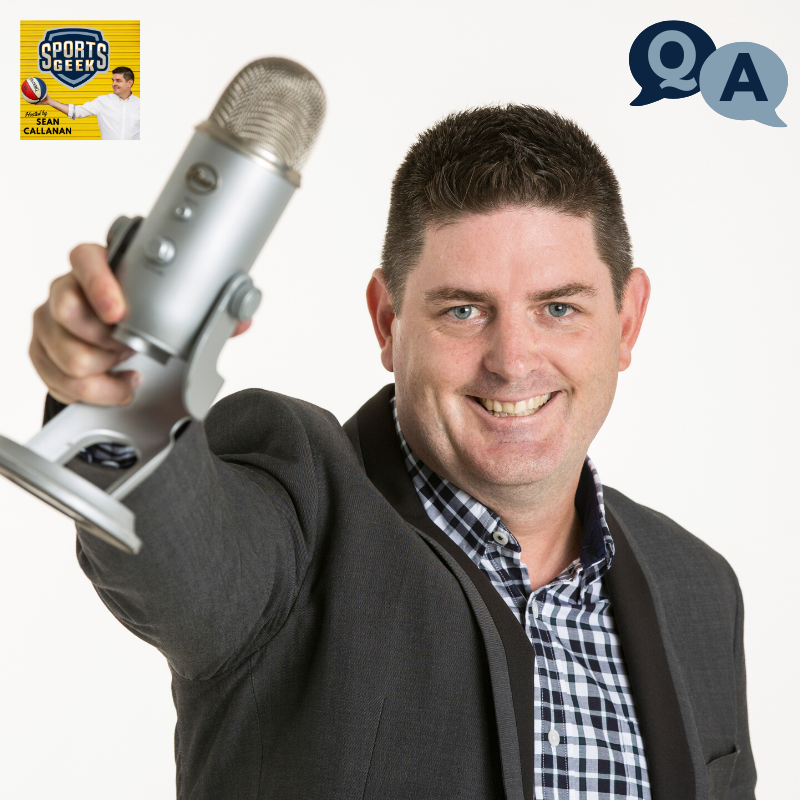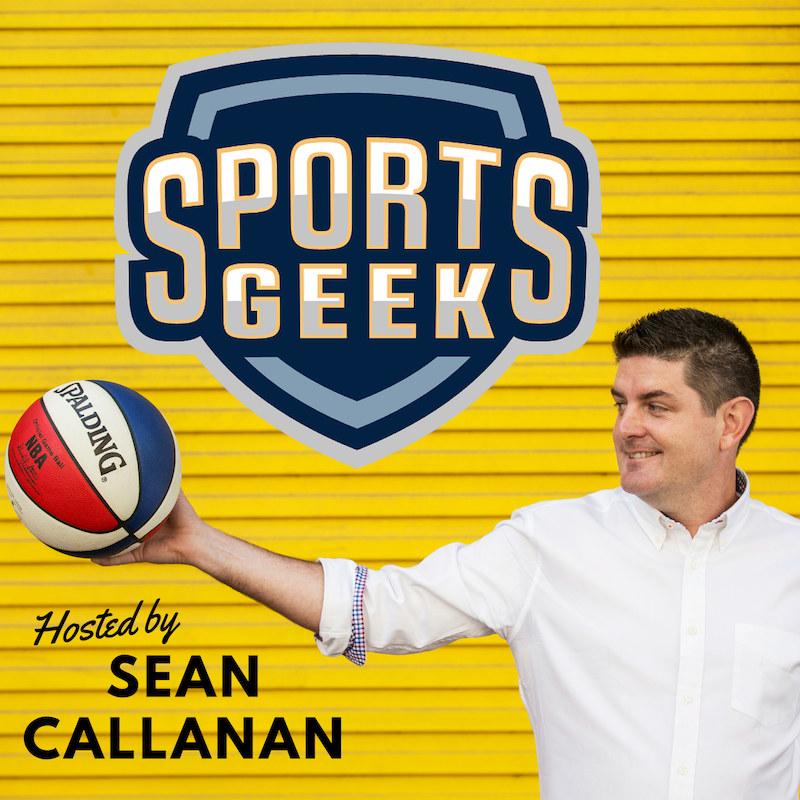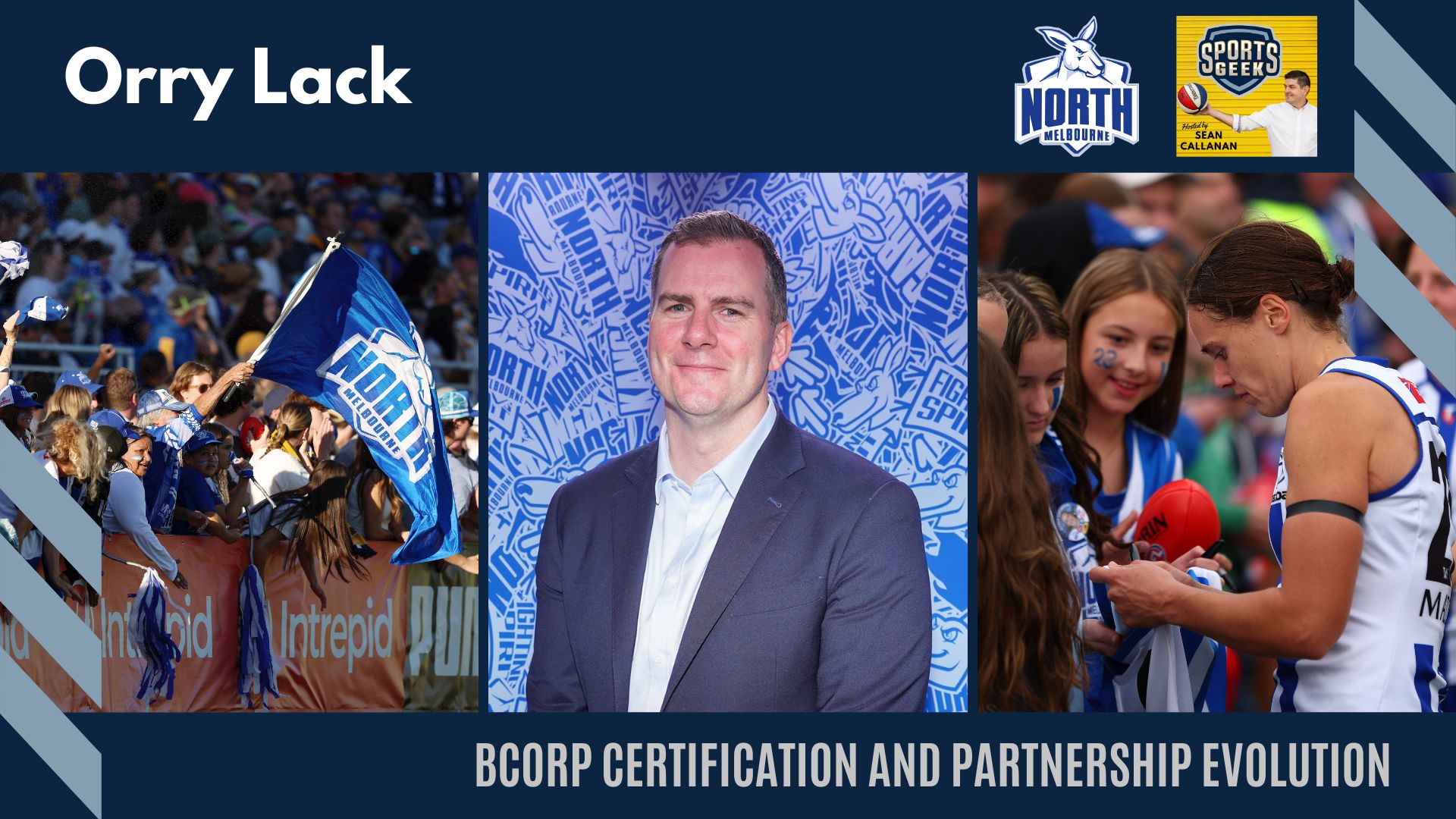Welcome to a new format for Sports Geek podcast, after 250 episodes we have decided to shake things up with another episode each week.
In the Sports Geek Q&A episodes Sean will answer 3 questions from you the listeners on a variety of topics, this is the first episode.
New episodes will be released Friday mornings, our regular episodes will be released Tuesday nights (release times in Australia EST).
On this Sports Geek Q&A episode Sean Callanan answers the following questions:
- Facebook & Instagram removing likes – will it affect sports? Jo
- What tools do you recommend for social media analytics? Emily
- What has been your biggest learning in esports so far? Brandon
Listen to Sports Geek Q&A for the answers
Can't see podcast player? Click here to listen
Read Sports Geek Q&A answers below
Question one comes from Jo, she asks, Facebook and Instagram are removing likes and like accounts. Will it affect sports?
Good question, Jo. I mean, Instagram and Facebook are constantly changing and you really can't be too reactive to what Facebook is going to do. It's always going to do what it's going to do. You just have to adapt. I actually don't think it will affect sports and sports, digital sports teams and leagues overall. I think it actually will benefit good content and and won't actually. I think it a little bit more as they sort of use that as a as a proving tool of what they're doing and maybe even a self validation tool. But if you're using like some posters as validation for your content, I'd think you really should be assessing why you're doing your content. So I don't think it will affect the overall piece. I think there is obviously a lot shifting in the Facebook space. They want to keep people on the platform and not moving away from the platform. So I think we'll continue to see the traffic drop, but I don't think that's related to the likes. It is disappointing. I mean, we'd always use the likes as a bit of social proof and sort of use that hack of getting likes in a post and in sharing it with other people and different audiences via ads to sort of use this a bit of social proof. So that's that tactic is now gone. So as I said, I do need to be net do need to be aware and adapt. One thing I would be keeping an eye on from Facebook on what it is trying to do is it's trying to it's trying to reduce click bait. So Facebook knows. But by and large, when people go to a site and when people leave and come back because most people have their Facebook pixel now installed in their site. So if you're not producing content that actually does engage, Facebook might falsely consider your content. Clickbait. So the things that I'd be looking at, bounce rates of your website, ensuring that the content you're producing is actually engaging.
So no, just put up a post that says here's so and sos injury and they click and they find out and then they bounce back because it could it could result in click bait notifications, which could restrict your reach, which is already currently being restricted. So keep an eye on that. Keep an eye on some of the some of the documentation around that arena. Click bait notifications and especially make sure that you are on Facebook Business Manager. Facebook is doing a really big job of trying to make sure everyone is using Business Manager rather than just managing their page via Facebook dot com. So if you are still managing your brand page or your team page via Facebook.com and you've got a blue Facebook title bar, I'd strongly consider looking at moving your pages to Business Manager and in requiring all your employees to be using Facebook Business manager, which is Business.Facebook.com. So I'd be looking to upgrade that because I think it's going to play a big part in what Facebook wants to do with pages sort of going forward.
Question two comes from Emily, who asks, What tools do you recommend for social media analytics?
Because the landscape so just told me before this landscape changes so often, it is really hard for third party providers to stay in front of all of the changes. So I always go to the native tools, whether it's Facebook analytics, Twitter analytics, what Instagram does provide the little that other platforms provide, where they be twitch and tick tock and those kind of things like there's not a lot of analytics there. So I always use the native tools and what they represent. I actually do think the Facebook analytics is starting to get a little bit better in what it is trying to represent. So that's where I normally start and and try to just to leverage those to save money and not have to spend money on a tool that's going to report a lot of things. But some of the tools we have used in the past and played around with played with Report garden, Socialblade, I know the guys that Zoomph, MVPIndex that do a combination of that analytics and reporting, but then also the valuation piece. So Socialbakers is another one. But what I'll be asking myself is, you know, what do you need the analytics for? Is it just for a shiny report that you're gonna send up to your board? If that's what you're what you're doing. I think there's probably the native tools can do can do that. They can do that for you. You probably spend your money better elsewhere. But there are some other ones. Please send me in the tools that you use. I'd love to know what people are using for that and what the requirement of of those kind of shiny reports are asked for by the C-level executives.
Question 3 comes from Brandon. What has been your biggest learning in sports so far?
Well, I'm still I'm still learning. I think the main a couple of the main things are there's still a lot of education needed. It's still very much in its infancy. And that education is in on both sides, both inside the sports industry to better understand how things like sports business works and how sports has gone about monetizing its audiences. So I think there's some expectations there in the sports world that needs some education around how you go about doing it. And then on the other side, the brands and sponsors and potentially also investors looking to get into EA Sports is to have them better understand the scene, the importance of community, what the difference in gaming and sports is, those kind of things. I think one of the pieces that there's a lot of education is streaming, which again, is really early Twitch and Mixer currently having fights around who will be the best, which is obviously the dominant player in the space at the moment. But brains are having a hard time trying to understand that, trying to understand that. Compare that to traditional digital media and those audiences and also the data and metrics around streaming is can is a little bit confusing around how many viewers, unique viewers, average minute viewers is one sort of metric that's starting to gain some traction in sports. So I think that piece as that develops, that will actually help more brands get involved with the in the space. But for mine, the industry overall just needs to focus on the business of sports and and treating it like a business. I had a chat recently with Marina Go on a Sports Geek podcast. And, you know, she mentioned that sports needs to the small business needs to focus on the business side and run it like a business. And I think a sports is very much the same. So I think focussing on the business, not on the hype. And it's very easy to get caught up in the hype of how many hundred million viewers there are of these sports events. But really the crown jewel of a sports is is the audience and and obtaining valid and useful data for sponsors and partners around that audience. So that to me, that's that's still there. That's why I got into sports with with Gravitas in the in the OPL. I think the data in the audience is the most attractive piece. And as we've seen in the world of sports, those with the most data win. So that's where my biggest learning in esports has been so far.
Send in your question
sean AT sportsgeekhq.com
+61 407 047 200

Pick my brain
Want some help on a campaign, sponsorship or content but don’t know where to start? Book a time with Sean Callanan for a Pick My Brain session.
The Pick my brain session is a two-hour video consulting session where you can get Sean’s thoughts and opinions on ticketing or sponsorship campaigns, campaign development and digital content review.
Listen To Sports Geek
Recent Sports Geek Reads
- Netflix’s Sports Streaming Boom Meets Meta’s Thread Podcasts: Paywall Future?
- From Netflix Avatars to F1’s Apple Deal: Sponsorship’s Dot-Connecting Future
- Media Rights Reshaping Sports Valuations
- World Cup Prize Money Soars to $655M
- Financial Fallout: Grand Slam Track Bankruptcy & FIFA’s Ticket Price Shift
- From WNBA Entrepreneurship to F1’s Concorde Agreement








